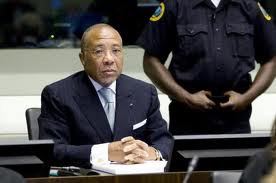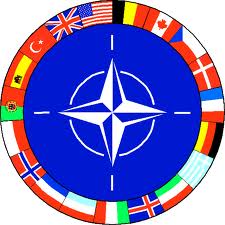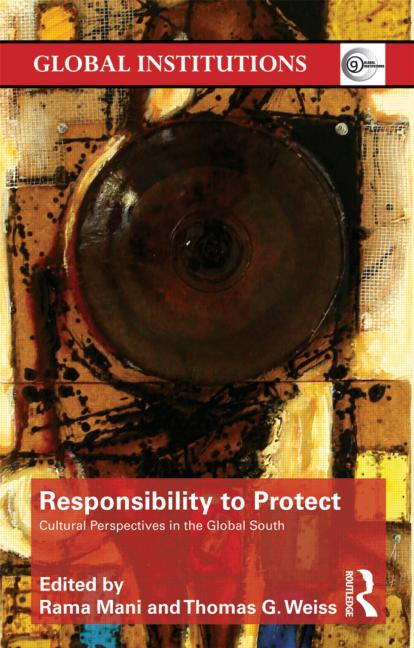
Charles Taylor trial highlights ICC concerns
After a long and expensive trial, the Special Court for Sierra Leone will finally give its verdict on whether former Liberian president Charles Taylor is guilty or innocent of war crimes and crimes against humanity. While there is little doubt Taylor commanded militias that were responsible for some horrific acts of violence in his home country, Liberia, today’s judgment will consider the extent to which he should be held responsible for ordering and condoning various war crimes (including murder, sexual violence, and enslavement) committed in neighbouring Sierra Leone. Amongst Western governments and their publics, there is widespread agreement that prosecuting Taylor has been the right and proper thing to do. The West considers the Special Court of Sierra Leone as …

The Irony of Privileging ‘Exceptionalism’ in the Asylum System
The majority of today’s nation states have adopted largely restrictive asylum policies whereby not everyone with a ‘well-founded fear of prosecution’ and on sturdy legal grounds are granted asylum. As a result, there is a trend towards privileging asylum seekers with ‘exceptional’ claims, something that scholars see as problematic. This post discusses these problems and the counter-productive nature of an asylum system where ‘exceptionalism’ is privileged. Within restrictive asylum systems, specific narratives are often required of asylum seekers to ensure a successful claim. To this end, asylum seekers often adapt or embellish their claims to fit the specific criteria. This was revealed in The New Yorker’s story on Caroline, a young African immigrant without papers who was applying for asylum …

A Lot of Talk: the Seoul Nuclear Security Summit accomplished little
The recently concluded two day Nuclear Security Summit in Seoul (March 26-27) ended with a promise to meet again. It was a follow-up to the first summit in Washington and participants will gather in the Netherlands in 2014 for what will be the third (and final) global summit of its kind. As the name suggests, the focus of the 2012 summit was ‘nuclear security’, a term not to be confused with nuclear plant safety or nuclear safeguard rules set by the International Atomic Energy Agency (IAEA). In simple terms, ‘nuclear security’ is an effort to prevent the use of an atomic bomb by terrorists or illicit actors and provide security against nuclear terrorism. To this end the key participating countries pledged …

Beyond the North Atlantic: why NATO should be recognised as a global organisation
The North Atlantic Treaty Organisation is a more global institution than its name implies. Although the security of its European and North American member states forms its core purposes, a strictly transatlantic or regional view is too narrow to fully describe what NATO does. NATO’s global engagement consists of three essential features. First, military operations – from peacekeeping to full spectrum war fighting – involves NATO in places far away from its home Euro-Atlantic area. Second, NATO maintains political and military ties with countries in neighbouring regions and around the world. Third, NATO is a significant enough global actor to interact with global trends. NATO’s membership may be regional, but its activities are global. The post-Cold War ‘out of area’ debate …

Towards a Two Speed Europe: Is the Inevitable Preferable?
Last week the Centre for International Studies held an excellent discussion panel (shortly to be made into a podcast) with Jean-Claude Piris (author and former Director General of the Legal Service of the Council Secretariat), discussing his new book, Towards a Two Speed Europe. Jean-Claude Piris, who has worked for many years in the highest echelons of European law-making and treaty formulation, is far more qualified than your blogger to evaluate the various implications of a formalisation of the currently observable divergence in paths of the European centre and its periphery. I shall not, therefore, attempt to evaluate his arguments from the point either of a lawyer or a European policymaker. I’m neither. Rather, I write merely as a citizen of …

Reflections on Pakistan Foreign Minister Hina Rabbani Khar’s visit to Oxford
The Foreign Minister of Pakistan, Ms. Hina Rabbani Khar, was hosted on 20th February for a talk at the Oxford Union by the Oxford University Pakistan Society and the Oxford Union Society. As the young female foreign minister of a country embedded in popular media imagination as a haven for all sorts of retrogressive elements, Ms. Khar’s visit was bound to generate a lot of interest among the student body. And so it proved as around 200 students attended Ms. Khar’s address which was covered by Pakistan’s major media outlets. The content of Ms. Khar’s speech was quite broad and overarching wherein she not only covered her own domain of Pakistani foreign policy but also set out what she believed …

Afghanistan’s human rights gains are too precious to compromise
Compared to the Taliban era of the 1990s, Afghanistan has made impressive gains in the sphere of human rights, especially women’s rights. The Afghan constitution prohibits discrimination between citizens “whether man or woman”. Consequently, Afghan women have a visible presence in parliament, cabinet, civil administration and media. As pillars of civil society activism, they have played a crucial role in expanding female education across the country. For the moment, the Afghanistan Independent Human Rights Commission keeps the government under scrutiny and the country’s vibrant media promotes a culture of free enquiry in what is still a predominantly tribal society. What Afghanistan has been able to achieve in the middle of a war, with international help, was virtually unthinkable over a …

On ‘Responsibility to Protect: Cultural Perspectives in the Global South’
At the 2005 UN World Summit, more than 170 Heads of State and Government accepted three interlinked responsibilities, which together constitute the principle of ‘responsibility to protect’ (R2P). First, States accepted the responsibility to protect their own populations from genocide, war crimes, ethnic cleansing and crimes against humanity. Second, States promised to assist each other in fulfilling their domestic protection responsibilities. And third, the international community took on a collective responsibility to react, in a timely and decisive manner, if particular States are manifestly failing to protect their populations from the abovementioned mass atrocity crimes. Despite a quite remarkable normative development (see for example the frequent invocation of R2P in relation to the recent Libya crisis), this R2P principle is …









